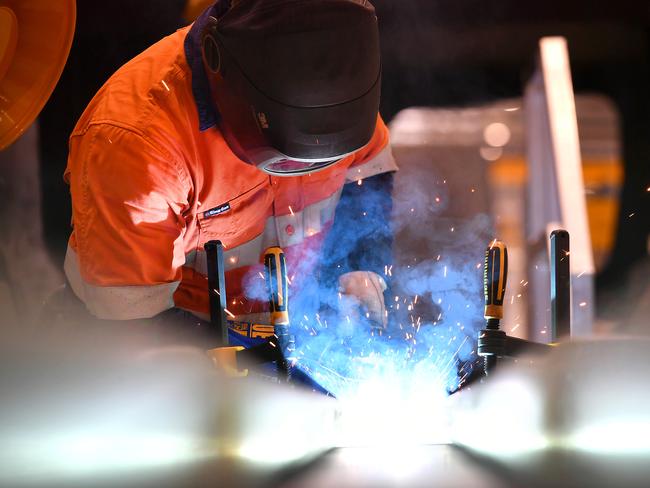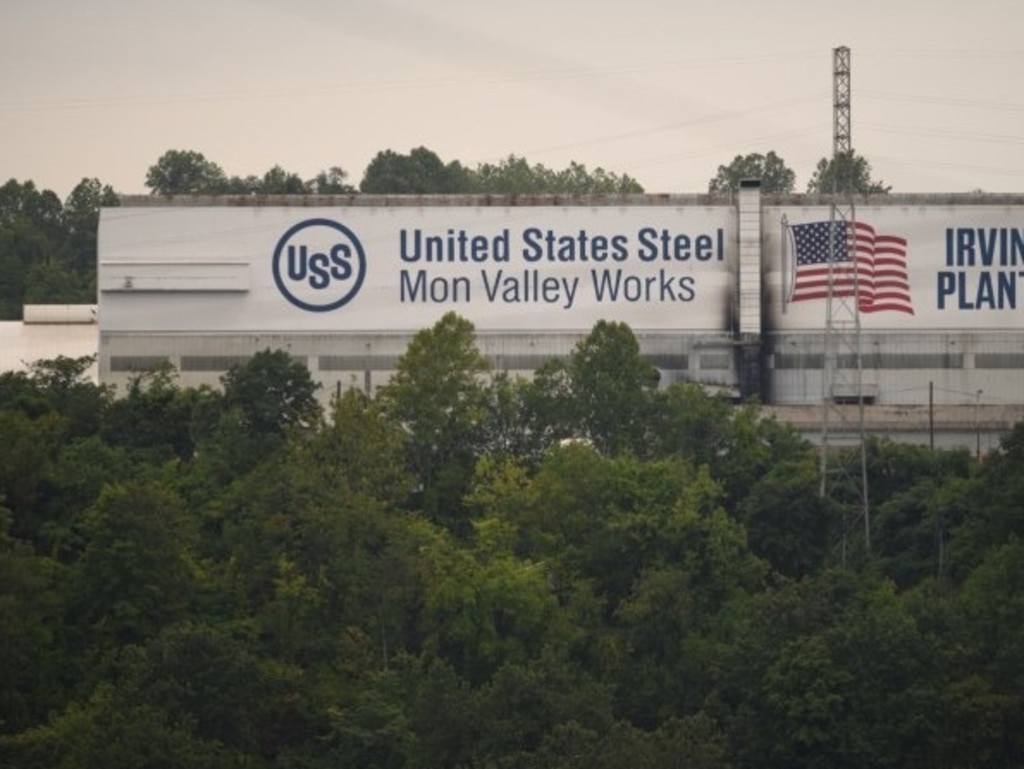‘Unjustified’: Donald Trump claims steel tariff will double, as Australia lashes surprise move
Don Farrell flags meeting, brokered by ambassador Kevin Rudd, with US trade representative in Paris to ‘coolly and calmly argue for the removal of these tariffs’.
Donald Trump has claimed the tariff rate on steel will double to 50 per cent, drawing the ire of the Australian government.
The US President blurted out the latest development in his trade war at a steel mill rally in Pennsylvania, on Saturday morning Australian time.
Australian Trade Minister Don Farrell said the latest tariff hike was unjustified.
Mr Farrell has flagged a meeting, brokered by US Ambassador Kevin Rudd, with US Trade Representative Jamieson Greer in Paris sometime next week.
“This is certainly not the act of a friend, we’ve had a very long and trusting relationship with the United States... We’re going to coolly and calmly argue for the removal of these tariffs,” Minister Farrell said.
The Labor minister pointed to the government’s track record negotiating with China on tariffs imposed on Australian products during the Morrison government.
He will also meet with Chinese trade representatives on Monday for the 10th time which he says will ensure continued “tariff-free” trade with the nation’s biggest trading partner.
Earlier in the day, Mr Farrell said Australia’s position had been consistent and clear. “These tariffs are ... an act of economic self harm that will only hurt consumers and businesses who rely on free and fair trade.
“We will continue to engage and advocate strongly for the removal of the tariffs.”

US government data shows the price of steel products into the US have increased by 16 per cent since Trump’s second term began.
Australian car parts, steel and aluminium are currently being slapped with a 25 per cent levy, as per Trump’s sweeping protectionist policies.
Meanwhile, in Singapore Defence Minister Richard Marles also took a swipe at the Trump administration’s tariff agenda while also welcoming the assurance by US Defence Secretary Pete Hegseth that allies in the Indo-Pacific will not be left alone to face increasing military and economic pressure from China.
“Reality is that there is no effective balance of power in this region absent the United States, but we cannot leave it to the United States alone,” he said, agreeing that Australia and other nations needed to do their part..
But the Australian Defence Minister also suggested the Trump administration’s aggressive trade policies were counterproductive.
“The shock and disruption from the high tariffs has been costly and destabilising,” he said, responding to Hegseth’s keynote speech at a security conference in Singapore.
Opposition shadow Trade Minister Kevin Hogan said the move was “concerning for Australian jobs” while calling on the government to “double its efforts to protect our steel industry”.
“The strength of our economic partnership has been built on trust and mutual benefit, and any deviation from this agreement undermines the principles of free trade,” he said in a statement.
“This is why it is imperative that the Australian Prime Minister personally meets with President Trump, as he is expected to do on the sidelines of the G7 in Canada in a couple of weeks.”
US government data shows the price of steel products into the US have increased by 16 per cent since Trump’s second term began.
Australian car parts, steel and aluminium are currently being slapped with a 25 per cent levy, as per Trump’s sweeping protectionist policies.
The Pennsylvania rally on Friday was near a factory owned by US Steel, and the President said Japanese steel giant Nippon had invested in the American firm.

“We’re here today to celebrate a blockbuster agreement that will ensure this storeyed American company stays an American company,” the President said.
“You’re going to stay an American company, you know that, right?”
“If you don’t have steel, you don’t have a country. You don’t have a country, you can’t make a military. What are we going to do? Say, ‘Let’s go to China to get our steel from the army tanks’,” Trump said.
The Trump administration initially promised to block Nippon’s bid to buy US Steel. Details of the “blockbuster agreement” have not been released. Nippon confirmed in a statement a proposed “partnership” had been agreed to.
This week a US trade court blocked most of President Trump’s tariffs, ruling he had overstepped Congress in using emergency powers to regulate trade.

The ruling did not apply to the steel, aluminium and vehicle tariffs, however, which were imposed using different laws.
The Trump administration immediately filed an appeal to the Court of International Trade’s decision and questioned the authority of the court.
The court decision was released on Wednesday US time, and financial markets rallied on the news.
The lawsuit was filed by 12 US states, plus five small businesses who argued the tariffs hurt their ability to do business. If allowed by the courts, the administration’s appeal would next go to the Court of Appeals, and then the Supreme Court if necessary.
Australia is one of the few countries which buys more from the US than we sell to the nation.
NewsWire has contacted some of Australia’s largest steel manufacturers for comment, following the latest tariff increase threat.
BlueScope employs about 4000 Americans, with its major US plant being in Ohio.
However, the company exports about 300,000 tonnes of semi-processed steel from Australia to the US each year.



